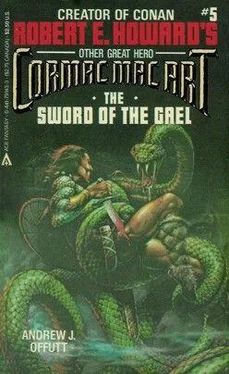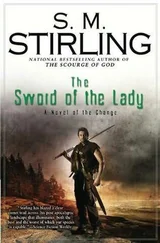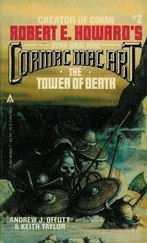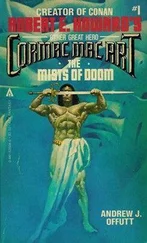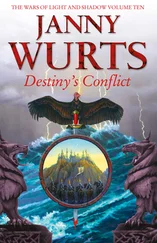Andrew Offutt - The Sword of the Gael
Здесь есть возможность читать онлайн «Andrew Offutt - The Sword of the Gael» весь текст электронной книги совершенно бесплатно (целиком полную версию без сокращений). В некоторых случаях можно слушать аудио, скачать через торрент в формате fb2 и присутствует краткое содержание. Жанр: Фэнтези, на английском языке. Описание произведения, (предисловие) а так же отзывы посетителей доступны на портале библиотеки ЛибКат.
- Название:The Sword of the Gael
- Автор:
- Жанр:
- Год:неизвестен
- ISBN:нет данных
- Рейтинг книги:3 / 5. Голосов: 1
-
Избранное:Добавить в избранное
- Отзывы:
-
Ваша оценка:
- 60
- 1
- 2
- 3
- 4
- 5
The Sword of the Gael: краткое содержание, описание и аннотация
Предлагаем к чтению аннотацию, описание, краткое содержание или предисловие (зависит от того, что написал сам автор книги «The Sword of the Gael»). Если вы не нашли необходимую информацию о книге — напишите в комментариях, мы постараемся отыскать её.
The Sword of the Gael — читать онлайн бесплатно полную книгу (весь текст) целиком
Ниже представлен текст книги, разбитый по страницам. Система сохранения места последней прочитанной страницы, позволяет с удобством читать онлайн бесплатно книгу «The Sword of the Gael», без необходимости каждый раз заново искать на чём Вы остановились. Поставьте закладку, и сможете в любой момент перейти на страницу, на которой закончили чтение.
Интервал:
Закладка:
Prince Ceann Ruadh grinned.
They trusted to Cormac; it was he waited until the dust settled and there was surely no sign of their being seen by the men riding so speedily ahead. Also, though he had not bothered mentioning it to his companions, he satisfied himself there was not another troop riding behind the first. There was not; neither Eogan nor the commander of the little battalion had thought that their quarry-their prey?-might come onto the road behind them.
The three did. They rode without stopping for a mile after plodding, saddle-creaking mile-and, in Cormac’s case, they were butt-breaking miles as well. Now and again when they topped a hill or came upon a long level stretch of the narrow road, they saw dust well ahead, and knew their seekers remained unsuspicious and in great haste.
“What do we do if they stop to break bread and catch sight of us,” Samaire asked, “or if they leave the road as we did and we overtake them?”
“An excellent question. Ceann! Heard you Samaire?”
Ceann nodded, and his hand went across his flat belly to touch the pommel of his sword, for weapons and armour had been in the packs Cormac had brought from Cashel and its well-stocked market.
Cormac shook his head. “No, we’ll not fight them unless we absolutely must. They were not bow-armed, which indicates they want us alive, as we might expect. It also means that they could not bring us down on the run even should they try. Next, they have been riding longer than we, and at the gallop. No, an it should out that we overtake them or are seen, we clap heels and ride! ”
Ceann wagged his head. “It’s kings that are going a-begging for good counsel without you at their sides, Cormac mac Art!”
“Mac Cuchulain,” Samaire murmured, gazing at the big scarred man with green eyes full of regard.
They rode, beneath a sky that was a great vacant tent of azure and white, set with the blinding jewel of thee sun. Twice they passed farm-wagons, and once a family in a field of flax. All waved merrily, as they did when they met a cart-riding family, and another time two men on foot. Cormac was sorry that they all had to eat dust, but there was no help for it.
The sun was well into the west when a line of trees marked a waterway. Without a word Cormac swung his mount from the road.
Soon the blowing beasts had been watered. They were given a short while to munch grass while their riders wet themselves in a lazy, rocky-bottomed stream that was broad but far from deep. Refreshed and remounted, they rode splashingly up that creek for the distance of a couple of what the Romans called after their fighting men’s pace: miles . At a ford they left the water and rode along the opposite bank for another mile.
Night was starting to fall when they came upon the peasant lad. Ten or so years of age, he was just leaving the creek’s bank with five nice trout on his line. He stared at them, without apparent fear.
“A good catch!” Cormac said in greeting.
The boy beamed and hefted his fish, but said, “Three days gone I caught seven in the same space!”
“There are good days and bad,” Cormac said,
and it’s glad I am you are fisherman enow to make them all good! We have come far… tell me where we now find ourselves.”
The boy stared. “Why, near the rath of my father Mogh mac Findtain!”
Samaire chuckled; Cormac nodded without smiling. “Ah, and it’s a good man he must be to have a son who’s such a fisherman. This may sound strange to ye, mac Mogh, but-we’ve come over from Leinster, and have lost track of distance. Are we-”
The boy smiled. “Why, ye be in Meath, pilgrims, ‘twixt Shannon and Slieve Sidhe-could ye not tell how greener the land was?”
Ceann laughed at the boy’s chauvinism. His companions smiled; they had succeeded in escaping Munster, and avoiding both its soldiery and the land of Leinster, and were well across the border into Meath. Without incident, they had gained ground well to the northeast and in a land where surely none wished them harm. Meath-and up ahead: ancient Rath Tara, and the court of the High-king.
They were not averse to accompanying the boy, Lugh, to his home. It was a lovely little house of good planking, built so that it backed up into a hillside which formed its rear wall.
Short, unshaven Mogh mac Findtain and his wife and other son were told that the pilgrims were Ceann: a poet and minstrel, and his wife Samaire who also played, and that Cormac, traveling with them by chance, hoped to take service with the Ard-high in Tara.
The farm family was happy to be entertained and forget awhile flax and cows and the vagaries of weather that ruled their lives, bringing them both joy and sadness. Their shared food was increased by the last of the bread and cheese and meat the travelers had with them, and there was foaming milk for all.
Without doubt Mogh’s family was both surprised and well pleased on the morning of the morrow, too, when they discovered what their guests had left behind. There were gifts of gold and silver worth a year’s crop, and the note that Ceann had picked out in Ogham, in hopes someone among the family could read:
“Say you did uncover these at your plowing, friends.”
The prince had chosen to sign the note with the old Ogham characters surely recognized by anyone: Anu, and Grannus, and Cu Roi mac Dairi. Ancient gods of Eirrin those were, the last a habitual traveler who carried the sword in martial conquest all over the ridge of the world, but who had never reddened his blade in Eirrin.
And the three had birthed a new legend.
“Now we’ve gained escape from Eogan’s hospitality,” Cormac told his companions as they proceeded at a sedate walk. “And good relations have been preserved with Cashel and his good son Senchann in whose debt we all are. For we bought all we took, and left behind as much, and shed no blood in Munster or on Munstermen.”
“It were well done, Cormac, and it’s good to know we have a friend in Munster.”
Aye , Cormac mused, for already he was considering the future, and its possibilities. And a good friend Senchann will be when he one day sits Munster’s throne… and once we’ve set you, Ceann Ruadh, on the throne of Leinster!
But as to that he kept his counsel. There was much to risk and still to be feared, ahead. The prospect of toppling Feredach was surely far in the future. First there was the matter of the High-king, and the Great Council, and… the reception given the exile, mac Art, and the decision he risked as to his very personal future. If the High-king and Council did nought about Samaire and Ceann-as Cormac expected, since Feredach was king by order of birth-they were still a prince and princess. In exile they’d be, aye. But safe, and well-treated on account of their births. They need not fear Feredach in Tara!
As to Cormac of Connacht, though… he risked his life, and well he knew it. He might be slain out of hand on the old charge. Or there might be a stay, while the Council and perhaps the Druids considered and decided-and then had him put to death for breaking the King’s Peace, twelve years agone.
He said nothing of any of this, as they rode through Meath.
This road, they learned, led not to Tara. To their right lay a forest. Beyond it, a broad road would lead them to the capital!
Thanking the peasant for his information and guiding their horses carefully around his laden cart, they entered the woods by a lane wide enough for but two to ride abreast. These, without discussion or decision, were Cormac and Samaire; Ceann’s horse paced contentedly along in their wake.
The horses plodded sedately along the shadedarkened road. Trees rose rustling all about, thickly crowding the narrow lane through the forest. Within the foliage, birds trilled, whistled and cheeped, while insects maintained a steady accompaniment of hum and buzz. The shade grew deeper and deeper, for the broad forest completely obscured the lowering disk of the sun. The three travelers cared not. They were in Meath, and ahead lay the broad road to and past Tulla Mor to Tara.
Читать дальшеИнтервал:
Закладка:
Похожие книги на «The Sword of the Gael»
Представляем Вашему вниманию похожие книги на «The Sword of the Gael» списком для выбора. Мы отобрали схожую по названию и смыслу литературу в надежде предоставить читателям больше вариантов отыскать новые, интересные, ещё непрочитанные произведения.
Обсуждение, отзывы о книге «The Sword of the Gael» и просто собственные мнения читателей. Оставьте ваши комментарии, напишите, что Вы думаете о произведении, его смысле или главных героях. Укажите что конкретно понравилось, а что нет, и почему Вы так считаете.
